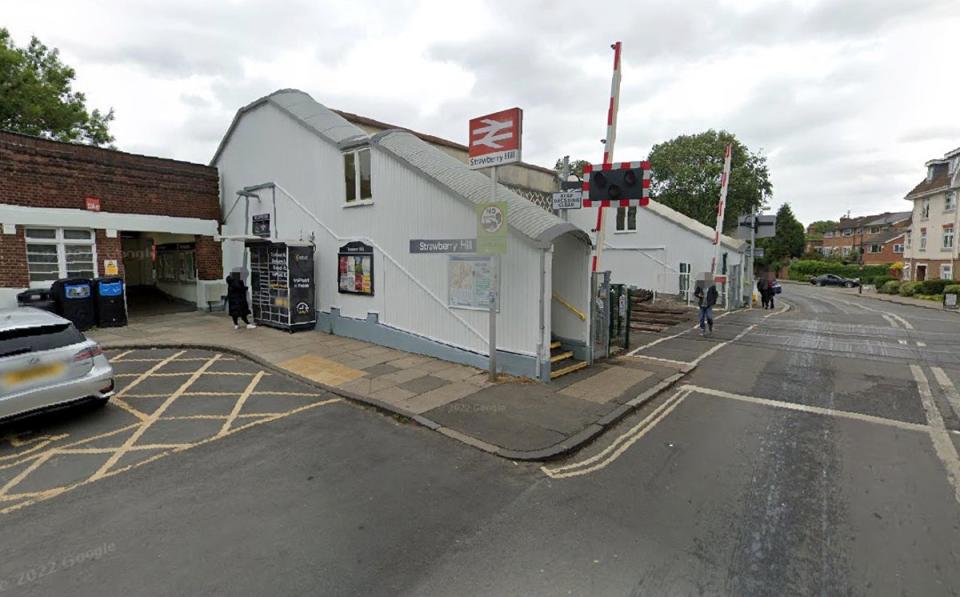One of the tragic aspects of the race row when Ngozi Fulani from Hackney was asked where she was from is that it has detracted from the reason she was invited to Buckingham Palace. She is a campaigner against domestic violence.
The shops may be playing ‘It’s The Most Wonderful Time of the Year’ but, sadly, it is not a wonderful time for everybody. Over the festive season the level of domestic violence increases dramatically.
Although domestic violence is, quite rightly, an important issue today, it is not new. In the past it was accepted as normal.
Until the 19th century, wives were classified as ‘Feme Covert’ which meant that they were ‘under the protection of her husband, baron or lord’.
In Victorian Britain, domestic violence was considered ‘normal’.
In 1848, a middle-class woman, Mrs. Dawson, applied for a divorce. Her husband was openly adulterous and flogged her with a horsewhip and a metal-spiked hairbrush but this was considered acceptable behaviour. The application was refused.
Married women were not even allowed to own property until 1882, everything had to be in her husband’s name.
Even in Victorian times there were women who tried to publicise the problem hoping that publicity might stop men from behaving is such appalling ways.
In 1891, at the age of 24, Emmeline Pethick-Lawrence travelled to London to work as a volunteer at the West London Methodist Mission. She later became one of the founders of the Suffragette movement.
In her biography My Part in a Changing World, written in 1938, she wrote about her time at the West London Methodist Mission. “Drunkenness was extremely common… It seemed for many the only refuge from depression and misery. The effect of drunkenness upon the ordinary relationship of husband and wife, parents and children, was disastrous.”
It seems that violence, fuelled by alcohol, was common and accepted.
“There was a particular point of view with regard to wife-beating. A friend of mine was once walking along the street and she passed a woman with a black eye. At the same time two other women passed, and one of them remarked: ‘Well, all I can say is, she is a lucky woman to have a husband to take that trouble with her’.”
Another woman who had gone through a similar experience remarked: “Well, it ain’t pleasant to be knocked about, but the making-up is lovely.”
Sadly, domestic violence is still with us 130 years later and it is still often fuelled by alcohol. Over the past ten years an average of 77 women were killed a year by their partner or ex-partner.
We now understand that it does not only mean physical violence. The abuser may try to cut their partner off from friends and family, verbally bully and try to control them before taking over all her finances. He may even take away her mobile phone or scroll though all her calls.
As a GP I’m afraid I saw domestic abuse at first hand. People who have never come across this serious crime suggest that the solution is simple; just leave him. Unfortunately, the situation is far more complicated.
The abuser may have undermined her so much that she believes she’s useless and has lost all confidence, behaviour now known as ‘gaslighting’. She may have nowhere to go. She may genuinely love him. Whenever he is violent he apologises and promises it won’t happen again. Of course, it does.
I wish I had a simple answer. It is important that we are all aware of the risk. It is not only an issue for worse off in society. It happens in all social classes.
If anyone finds themselves the victim of abuse, there are helplines on the government website. And, whatever he says, it is not your fault. Domestic violence of any type is never acceptable.
The whole world might have changed since the 1890s but, sadly, Emmeline Pethick-Lawrence would recognise today’s domestic abuse.
https://news.google.com/__i/rss/rd/articles/CBMibmh0dHBzOi8vd3d3LnRvcmJheXdlZWtseS5jby51ay9kci1wZXRlci1tb29yZS1kb21lc3RpYy12aW9sZW5jZS1hLWNlbnR1cnktb24tYW5kLXNhZGx5LWFidXNlLWlzLXN0aWxsLXdpdGgtdXMv0gEA?oc=5




